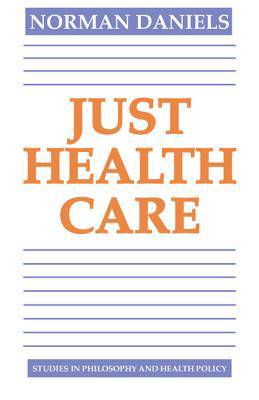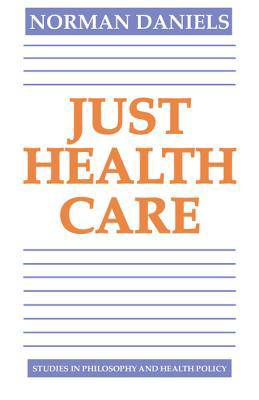
Door een staking bij bpost kan je online bestelling op dit moment iets langer onderweg zijn dan voorzien. Dringend iets nodig? Onze winkels ontvangen jou met open armen!
- Afhalen na 1 uur in een winkel met voorraad
- Gratis thuislevering in België vanaf € 30
- Ruim aanbod met 7 miljoen producten
Door een staking bij bpost kan je online bestelling op dit moment iets langer onderweg zijn dan voorzien. Dringend iets nodig? Onze winkels ontvangen jou met open armen!
- Afhalen na 1 uur in een winkel met voorraad
- Gratis thuislevering in België vanaf € 30
- Ruim aanbod met 7 miljoen producten
Zoeken
€ 31,45
+ 62 punten
Uitvoering
Omschrijving
How should medical services be distributed within society? Who should pay for them? Is it right that large amounts should be spent on sophisticated technology and expensive operations, or would the resources be better employed in, for instance, less costly preventive measures? These and others are the questions addreses in this book. Norman Daniels examines some of the dilemmas thrown up by conflicting demands for medical attention, and goes on to advance a theory of justice in the distribution of health care. The central argument is that health care, both preventive and acute, has a crucial effect on equality of opportunity, and that a principle guaranteeing equality of opportunity must underly the distribution of health-care services. Access to care, preventive measures, treatment of the elderly, and the obligations of doctors and medical administrations are fully discussed, and the theory is shown to underwrite various practical policies in the area.
Specificaties
Betrokkenen
- Auteur(s):
- Uitgeverij:
Inhoud
- Aantal bladzijden:
- 260
- Taal:
- Engels
- Reeks:
Eigenschappen
- Productcode (EAN):
- 9780521317948
- Verschijningsdatum:
- 27/09/1985
- Uitvoering:
- Paperback
- Formaat:
- Trade paperback (VS)
- Afmetingen:
- 140 mm x 216 mm
- Gewicht:
- 362 g

Alleen bij Standaard Boekhandel
+ 62 punten op je klantenkaart van Standaard Boekhandel
Beoordelingen
We publiceren alleen reviews die voldoen aan de voorwaarden voor reviews. Bekijk onze voorwaarden voor reviews.











